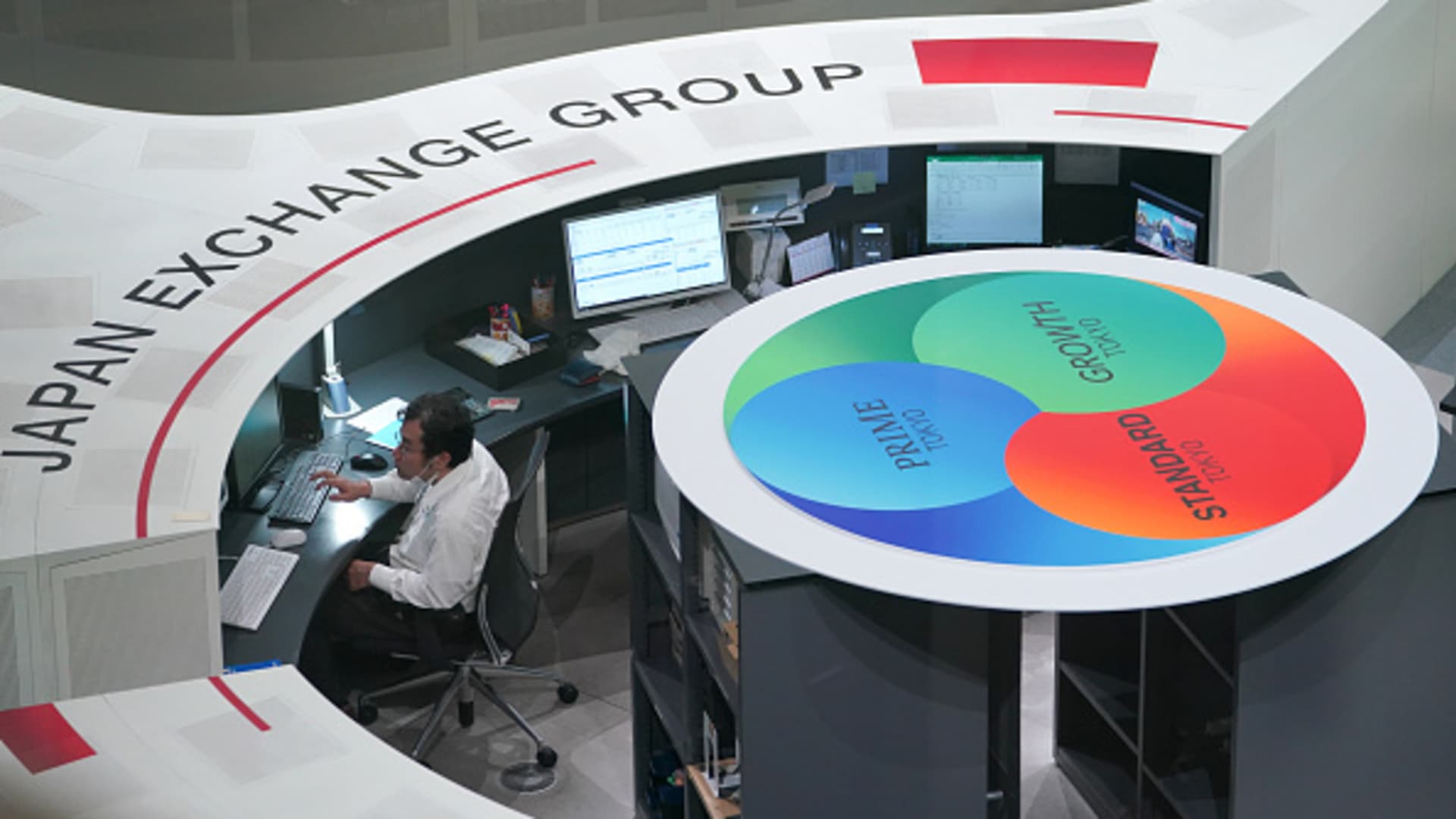
SINGAPORE — Shares in Asia-Pacific nudged higher in Wednesday trade, with New Zealand’s central bank announcing yet another rate hike.
Hong Kong’s Hang Seng index advanced 0.64% by the afternoon, while the Shanghai Composite in mainland China edged about 0.6% higher and the Shenzhen Component gained 0.145%.
The Nikkei 225 in Japan climbed 0.11% while the Topix index stood 0.24% higher.
The RBNZ, like a lot of other central banks, is a long way behind the curve.
Jeremy Lawson
Chief economist, abrdn
Elsewhere, South Korea’s Kospi gained 0.81%. The S&P/ASX 200 in Australia advanced 0.77%.
Over in Singapore, the Straits Times index edged down 0.2%. The country reported first-quarter GDP that grew 3.7% year-on-year, higher than the 3.4% expansion seen in the government’s advance estimate.
MSCI’s broadest index of Asia-Pacific shares outside Japan traded 0.79% higher.
RBNZ announces rate hike
The Reserve Bank of New Zealand announced Wednesday its decision to hike its official cash rate by 50 basis points to 2%, a decision expected by most of the economists polled by Reuters.
” A larger and earlier increase in the [official cash rate] reduces the risk of inflation becoming persistent, while also providing more policy flexibility ahead in light of the highly uncertain global economic environment,” the RBNZ said in a release announcing the rate hike.
The New Zealand dollar changed hands at $0.6503 following the rate hike announcement, bouncing after seeing an earlier low of $0.6418.
This latest rate hike would be the country’s fifth in a row.
“The RBNZ, like a lot of other central banks, is a long way behind the curve,” Jeremy Lawson, chief economist at abrdn, told CNBC’s “Street Signs Asia” on Wednesday.
“The narrative is that … these rate hikes are front loaded, the central bank is starting to get ahead of the game. Actually I don’t think that’s really true, cause really the policy adjustment needed to start last year in many economies and it didn’t and so now we’re in this sort of very sort of steep policy tightening phase,” Lawson said.
Dual-listed tech stocks in Hong Kong under pressure
Shares of dual-listed Chinese tech stocks in Hong Kong fell. By Wednesday afternoon in the city, shares of Alibaba declined around 1% while JD.com and Baidu slipped 0.94% and 1.71%, respectively.
Those losses came after comments from a U.S. Securities and Exchange Commission official on Tuesday that “time is running out” in negotiations between U.S. and Chinese authorities regarding audit inspections. Baidu and JD.com are among Chinese firms placed by the SEC on a list of companies that face potential delistings stateside.
“While there has certainly been progress in the discussions on audit inspections in China and Hong Kong, significant issues remain and time is quickly running out,” said YJ Fischer, director at the office of international affairs at the SEC.
“Even if an agreement is signed between the [Public Company Accounting Oversight Board] and Chinese authorities, it will only be a first step. The PCAOB must be able to obtain sufficient cooperation and agreement from Chinese authorities so that the PCAOB Board can make a determination that it can inspect and investigate completely in China and Hong Kong,” said Fischer, according to a transcript.
Currencies and oil
The U.S. dollar index, which tracks the greenback against a basket of its peers, was at 101.908 having recently declined from above 102.2.
The Japanese yen traded at 127.11 per dollar, stronger than levels above 127 seen against the greenback earlier this week. The Australian dollar was at $0.7113 following a recent bounce from levels below $0.708.
Oil prices were higher in the morning of Asia trading hours, with international benchmark Brent crude futures up 1.17% to $114.89 per barrel. U.S. crude futures climbed 1.19% to $111.08 per barrel.





